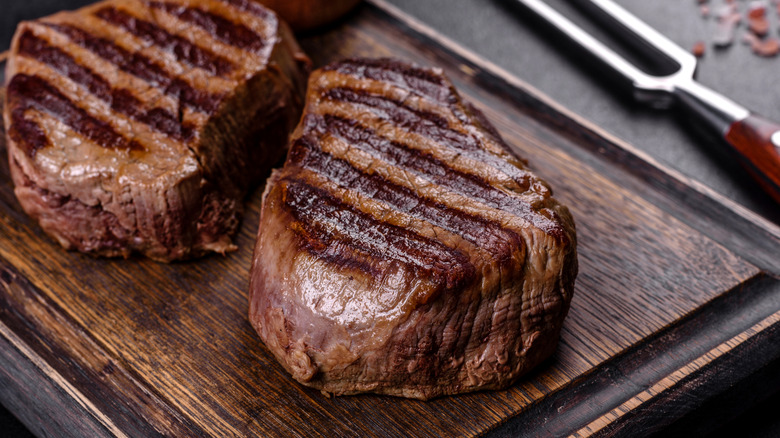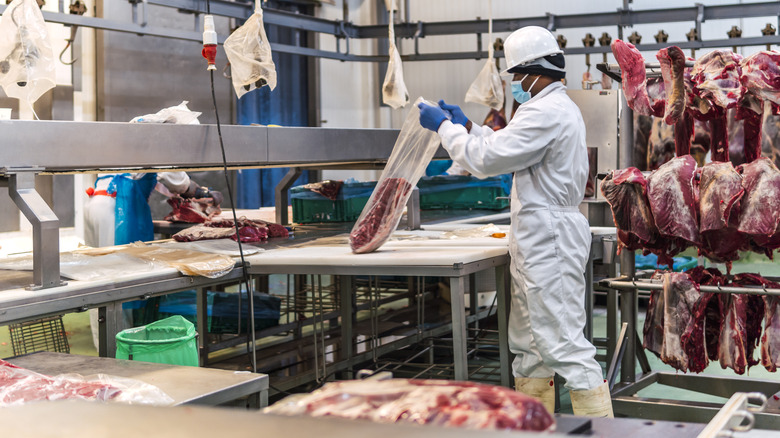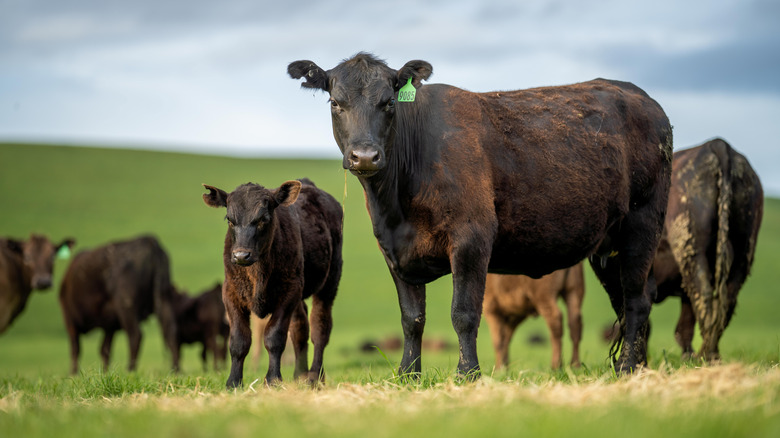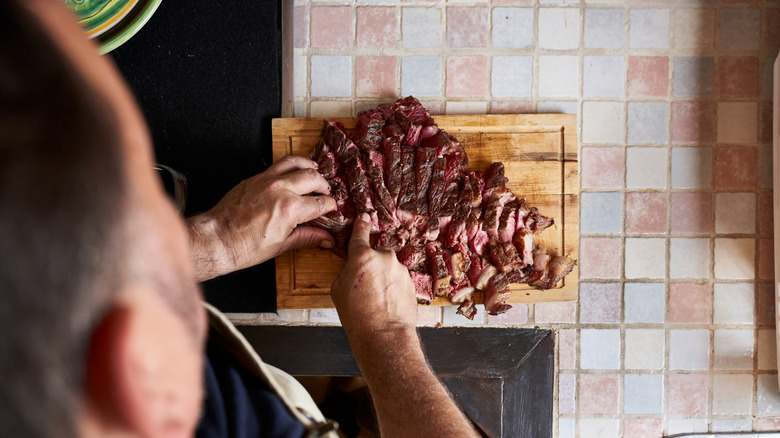The Largest Beef Recall To Hit The US, Explained
The businesses that raise cattle and produce beef in the U.S. must adhere to strict rules and regulations. These rules not only protect consumers, but they also safeguard animals against needless cruelty, which is precisely what occurred in a California-based meat-packing facility in 2007. According to footage disseminated by the Humane Society, staff members at Hallmark Meat Packing plant were seen using brutal methods to cajole weakened, potentially sick cows to slaughter. This plant was providing meat to the Westland Meat Company, which in turn was distributing the beef to National School Lunch programs as well as families and elderly individuals in need.
The actions of Hallmark Meat Packing resulted in a massive recall of 143 million pounds of beef — the largest in the nation's history. Despite the recall, many potentially sick cows were slaughtered, and the resulting beef was distributed. Fortunately, no illnesses were linked to the meat prior to the animal abuse issue coming to light. While the incident doesn't rank among the most deadly recalled foods in American history (a list that does include Boar's Head deli meat and certain brands of cantaloupe), the cruelty exhibited toward the cattle was appalling and ultimately led to a massive judgement of $497 million, the highest amount ever awarded for animal abuse. Due to the expenses associated with the recall, Hallmark Meat Packing eventually filed for bankruptcy.
What are downer cows, and why are they hazardous?
While the actions of the staff at Hallmark Meat Packing were inherently offensive, they also violated federal statutes. So-called "downer cattle" — cows that are incapable of standing — could be released for slaughter provided that Food Safety and Inspection Service veterinarians designated them safe for consumption after examination. This assessment of downer cattle was important for preventing contaminated meat from making its way into the food supply.
In particular, the risk of mad cow disease was especially worrisome due to the seriousness of these infections. Also known as bovine spongiform encephalopathy, mad cow is a type of prion disease that is fatal for cows, but it can also lead to variant Creutzfeldt-Jakob disease in humans (though the risk is admittedly small). Because Hallmark Meat Packing did not take the crucial step of having approved vets evaluate downer cattle prior to slaughter, the company was pressured to enact its voluntary recall by the Department of Agriculture. Additionally, the actions of the meat-packing facility led to a change in federal law mandating the culling of downer cattle in all circumstances.
The five freedoms set the standard for animal welfare
The deplorable conditions at Hallmark/Westland meatpacking facility were a far cry from the recommended standards for animals. Many animal welfare advocates look to the five freedoms for guidance on these matters, standards established by British professor Roger Brambell in 1965. According to the five freedoms, animals must be free from hunger and thirst; free from discomfort; free from pain, injury, or disease; free to express normal behavior; and free from fear and distress.
While the five freedoms are British in origin, they're indispensable to numerous organizations, agencies, and groups. They also play a crucial role in audits and evaluations conducted at facilities where livestock is processed. According to the American Humane Society, the five freedoms represent a global "gold standard in animal welfare" because they ensure that an animal's basic needs are met while also establishing an environment that supports optimal physical and mental health.
Benefits of rearing cattle ethically and humanely
Raising cattle humanely is simply the right thing to do from an ethical perspective, but it also offers many other benefits. Raising cattle on grass instead of grain reduces a beef producer's carbon footprint and helps maintain the natural ecosystem surrounding the cattle. Additionally, businesses can benefit from the use of humane methods because many consumers insist on buying products from companies that implement humane standards for animals.
Eliminating an animal's stress is also vital for preserving food safety. Stressed cattle have a higher chance of experiencing immune dysfunction, which can prevent animals from effectively fighting off diseases. While you're more likely to get food poisoning from produce than meat, decreased immune function in animals can raise the risk of infections caused by Campylobacter, E. coli, and Salmonella bacteria. Safeguarding cattle against stress can also reduce reliance on antibiotics, which are administered to cows as a safety precaution. Overuse of these medications in animals is associated with an increased risk of antibiotics resistance in humans, reducing the effectiveness of treatments for bacterial infections.



